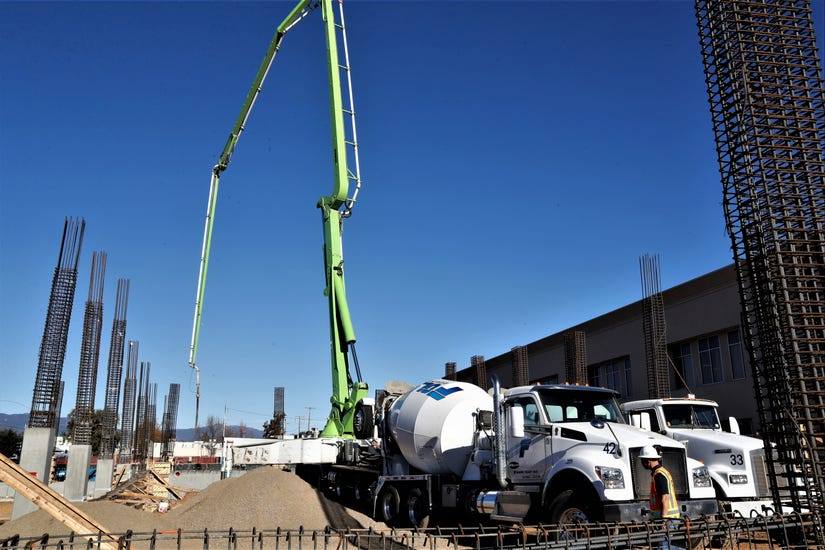What is Air Entrained Concrete?
Air entrained concrete contains microscopic air bubbles that help alleviate internal pressure on the concrete by providing small pockets for water to expand into when exposed to freeze-thaw conditions. Without these pockets water has no place to escape, leading to cracks and/or scaling in concrete that greatly diminish the lifespan of a structure. Air is applied into a concrete mix via an air entraining admixture otherwise known as AEA. The amount of air in a mix can be adjusted to meet the specifications of the job at hand.
Why do we use Air Entrained Concrete?
It is beneficial to use air entrained concrete when placing concrete in areas with freeze-thaw conditions. Freeze-thaw conditions occur when the temperature of an environment fluctuates between above freezing temperatures and below freezing temperatures. Additionally, air entrained concrete provides scaling resistance and a prolonged service life. It is important to use air entrained concrete to avoid cracks in the concrete which later leads to increased deterioration of the structure.
Technical Information:
For freeze-thaw protection, the air content of a concrete mix will typically be in the 5-7% range. Depending on the amount of air specified, it will then be necessary to increase the cement content to achieve desired strengths. Although these air bubbles are microscopic, when the amount of air in a concrete mix is increased it will weaken the concrete. Generally, the use of air entraining admixtures will lead to a strength reduction of about 5% for each 1% increase in the volume of air voids in a mix. The reason why this occurs is because as more air is introduced to the mix the concrete becomes less dense as well as more of the concrete being air. With more cement (the “glue” in concrete) a concrete mix will have more strength. Therefore, if a concrete mix requires air entrainment there will typically be more cement in the mix to compensate for the strength loss.
Advantages of Air Entrained Concrete:
Air entrained concrete is key to freeze-thaw resistant concrete.
• Increased resistance to freeze-thaw conditions
• Increased workability
• Increased durability
• Increased resistance to chemical attack
• Increased cohesion
Disadvantages of Air Entrained Concrete:
• Strength loss
• Decreases in unit weight
• Potential honeycombing
Folsom Ready Mix provides consistent, high-quality concrete. Contact us to get started on your next job: (916) 851-8300

